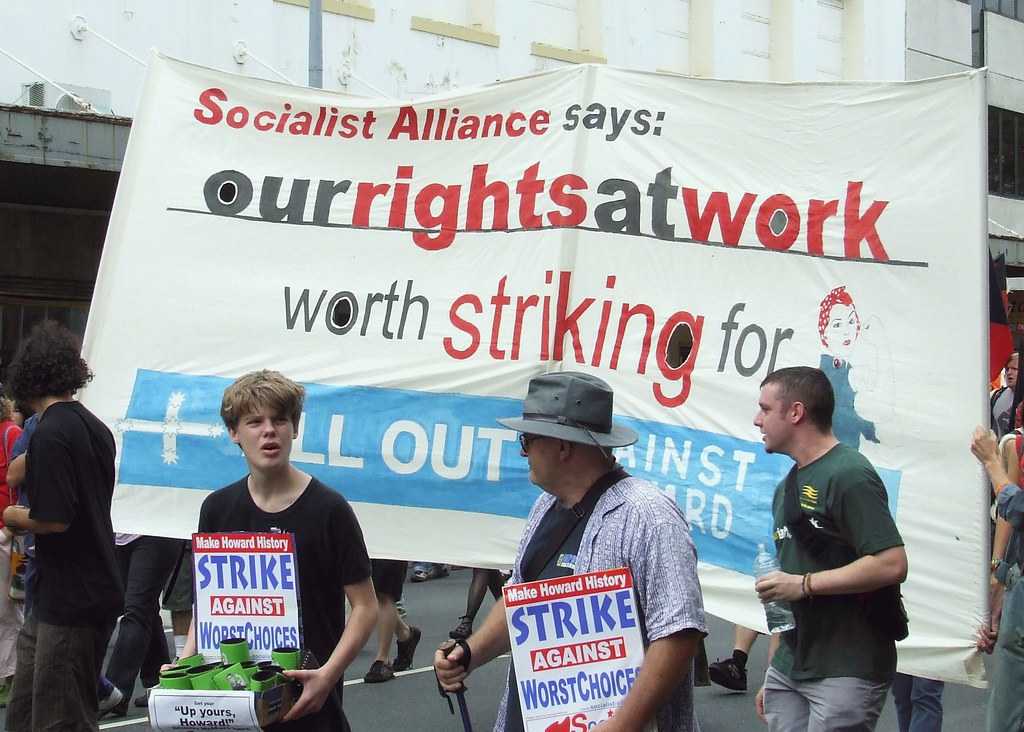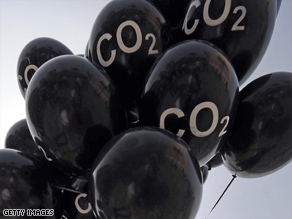Toronto G20: `Toxic remedies' will make workers and poor pay for the crisis
By Damien Millet, Sophie Perchellet and Eric Toussaint. Translated by Christine Pagnoulle and Marie Lagatta
The socialist revolution and the mass revolutionary party

Lenin: "In its struggle for power the proletariat has no other weapon but organisation".
By Dave Holmes
Venezuela: Workers’ control and the contradictions of the Bolivarian process

Gustavo Martínez interviewed by Susan Spronk and Jeffery R. Webber
June 21, 2010 – The Bullet – On June 10, 2010, we caught up with Gustavo Martinez, a union leader in the worker-controlled, nationalised coffee company, Fama de América, in Caracas, Venezuela. The company has 350 workers at the national level, with two separate plants – one in Caracas and one in Valencia. We sat down with Martínez to discuss the centrality of workers’ control in the ongoing struggle to transition toward socialism and some of the most pressing contradictions of the Bolivarian process in Venezuela today.
* * *
To start off, can you tell us your name, how long you've worked in this coffee company, your job in the company, and your role in the union?
Eric Toussaint: Venezuela's Bolivarian revolution at the crossroads?
By Eric Toussaint
[See parts 2 , 3 and 4 below.]
South Africa: FIFA, not migrants, are the real tsotsis

By Patrick Bond, Durban
June 25, 2010 -- South Africa's soccer-loving critics have long predicted the problems now growing worse here because of its World Cup hosting duties:
- loss of large chunks of government’s sovereignty to the world soccer body FIFA;
- rapidly worsening income inequality;
- future economic calamities as debt payments come due;
- dramatic increases in greenhouse gas emissions (more than twice Germany’s in 2006); and
- humiliation and despondency as the country’s soccer team Bafana Bafana (ranked #90 going into the games) became the first host to expire before the competition’s second round.
Soon, it seems, we may also add to this list a problem that terrifies progressives here and everywhere: another dose of xenophobia from both state and society.
The crucial question in coming weeks is whether, instead of offering some kind of resistance from below, as exemplified by the Durban Social Forum network’s 1000-strong rally against FIFA on June 16 at City Hall, Durban, will society’s sore losers adopt right-wing populist sentiments, and frame the foreigner?
Asian left: `Lift the siege on Gaza! Support boycott, divestment and sanctions on apartheid Israel'
Statement by Asian left organisations
[To add your organisation’s endorsement, please email: international@socialist-alliance.org.]
June 25, 2010 -- As Israel stands increasingly isolated following its manufactured confrontation on May 31, 2010, with the peace flotilla in which nine Turkish activists on the Mavi Marmara were murdered, now is the time to increase the pressure on Israel to lift the siege of Gaza.
Israel’s criminal blockade of Gaza is aimed to collectively punish 1.5 million Gazans for their choice of government.
The attack on the flotilla was aimed at demoralising Palestinians and their supporters. But, as we've seen from the global protests – particularly in Turkey and the Arab world – it has backfired on the Netanyahu government. Turkey, once a close political and military ally, has now distanced itself from Israel and supports attempts to break the Gaza blockade.

Skulls of victims of one of the massacres during the 1994 Rwandan genocide are displayed at the Genocide Memorial Site church of Ntarama in Nyamata, Rwanda.
Tariq Ali: Afghanistan -- `Obama’s war'

By Tariq Ali
Football, sport and capitalism: Terry Eagleton 1 -- Dave Zirin 1?

Terry Eagleton: `Football -- a dear friend to capitalism'
By Terry Eagleton
June 15, 2010 -- The Guardian (UK) -- If the [new British] government is bad news for those seeking radical change, the soccer World Cup is even worse. It reminds us of what is still likely to hold back such change long after the coalition is dead. If every rightwing thinktank came up with a scheme to distract the populace from political injustice and compensate them for lives of hard labour, the solution in each case would be the same: football. No finer way of resolving the problems of capitalism has been dreamed up, bar socialism. And in the tussle between them, football is several light years ahead.
Class and politics in Thailand

World People's Conference on Climate Change: Some critical comments on the People's Agreement

[For full coverage of the World People's Conference on Climate Change, including the full text of the documents, click HERE.]
By Daniel Tanuro and Sandra Invernizzi
June 2010 -- International Viewpoint -- The World People's Conference on Climate Change and the Rights of Mother Earth, which met in Cochabamba (Bolivia) from April 20-22, 2010, at the invitation of Bolivia's President Evo Morales, was an enormous success. Thirty-thousand participants discussed for several days the various facets of the climate crisis and adopted a series of very interesting documents, from a resolutely anti-capitalist standpoint.